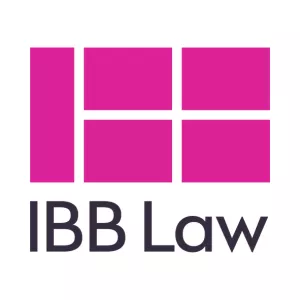- with readers working within the Property industries
The UK's Intellectual Property Court (IPEC) has recently decided a trade mark dispute involving two south London fast food chicken brands Morley's and Metro's.
Morley's is a popular fried chicken franchise that has been around since 1985. Morley's has 3 registered UK trade marks for food, beverages and restaurant/takeaway services comprising "MORLEY'S" logo mark, the "triple M" mark and "Morley's MMM...It Tastes Better" mark in red and white.
Metro's also operates in the fried chicken sector but was newer to the market and operated alongside its franchisees. Metro's franchisees were also defendants in the proceedings along with the franchisor owner, Mr Kunatheeswaran.
In around 2010, Morley's became aware of an outlet operating as 'MOWLEY'S' by Mr Kunatheeswaran and in 2018 the parties entered a settlement agreement where it was agreed that use of two UK trade marks containing the word "MOWLEY'S" would cease.
Later on, Mr Kunatheeswaran and his franchisees started using the sign "Metro's...It's the Real Taste". Some of the franchisees were also alleged to have used "MMM" and/or "Triple M" in their branding.
Morley's issued proceedings alleging that the Metro's brand infringed their registered trade marks and the Court found that there had been infringement by Metro and its franchisees.
The Court decided that Metro's and its franchisees use of the sign had infringed "Morley's" mark as it would cause a likelihood of confusion given that the signs were globally similar to a medium degree; they were visually quite similar, and similar conceptually with straplines centred around good taste.
Secondly, the Court found that Metro's use also infringed the "Triple M" mark as the signs were globally similar to a medium-high degree. As in the context of a food product that must be requested orally, the sign could naturally be pronounced "triple m", so that the signs were aurally and conceptually identical (if visually dissimilar).
The Court considered that when considering the test under section 10(2)(b) of the Trade Marks Act 1994, the likelihood of confusion had to be assessed from the perspective of the average consumer of the relevant goods and/or services, who was deemed to be reasonably well informed and reasonably observant and circumspect.
In these circumstances, the Court found that there were two types of 'average consumer'.
The first is "children, young people, students and families, who buy at lunch, at teatime and into the evening and have low disposable income... with a medium to low degree of attention" and the second is "late-night and early-morning revellers... who are likely tired, hungry and a significant subset of which will be intoxicated... will pay a low degree of attention."
The Court found that it was "enough for one of those classes of average consumer to be confused for there to be a likelihood of confusion".
In terms of the 2018 settlement agreement, the Court also held that Metro's use was a breach of the agreement.
The Court considered the recent May 2024 Supreme Court decision in Lifestyle Equities v Ahmed and found that Mr Kunatheeswaran was jointly and severally liable for the infringement of the Metro franchisees.
Her Honour Judge Melissa Clarke said that Mr Kunatheeswaran "had reasonable grounds for knowing, and should have appreciated" that his sign was infringing Morley's red marks and that by granting licences in franchise agreements he had "knowingly authorised and procured the infringements".
The content of this article is intended to provide a general guide to the subject matter. Specialist advice should be sought about your specific circumstances.


